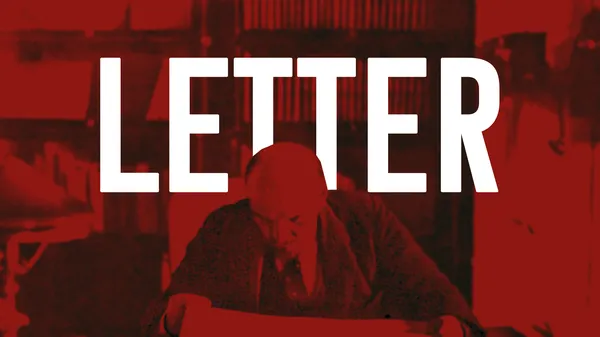An innocent man was murdered by the United States. May Khaliifah Ibn Rayford Daniels ’Abdul Qudduus, formerly Marcellus Williams, rest in power. The death penalty has no place in the world we want to build.
Donald Parkinson, on Twitter, takes the correct stance here, saying:
The fact the country [the US] still has the death penalty is unconscionable. And yet we have leftist [sic] who won’t oppose it because it gets in the way of their revolutionary retribution fantasies.
I fully support this position. A dictatorship of a proletariat-in-abolition has no place for the death penalty, simply because the way in which proletarians-in-abolition react, respond, and deal with harm cannot and will not look like the modes we are familiar with under bourgeois society. To apply bourgeois logic and tools under the rule of the proletariat in the process of abolishing itself and all class society would simply think of the proletariat in bourgeois terms—without reference to how a class-in-abolition transitions from class society towards a classless one.
I am therefore dismayed that the replies to such a sensible (and basic abolitionist) position would be to defend capital punishment under socialist states. So the position goes, the bourgeois state (and the US state in particular) is racist, but it’s not an indictment of capital punishment itself. Or perhaps, the death penalty under “popular democracies” or “revolutionary governments” will have a different character than under bourgeois rulership.
Now, I hate intervening in Twitter debates, because, frankly, it’s often dumb and devoid of content. But this gross vulgarism must be corrected. A man was murdered by the state, yet leftists flock to defend the supposed right of their desired future dictatorships to murder. Have we really learned nothing?
Of course revolutions will be violent affairs, but to reduce the revolution to a murder contest between the revolutionaries and the reactionaries is to miss the point: the social revolution we desire is not the transferring of power to one class to another or to one set of rulers to another, but for the transition from a class society towards a classless one. Revolutions of the latter subvert social relations more than it inflicts violence. (Yes, I am channeling Gilles Dauvé’s “When Insurrections Die” here, and he is correct in this regard.)
There is a reason why the communards of the first proletarian revolution—the Paris Commune—burned the guillotine: it became the image of state power used against the proletariat. I come from a country in which the dominant communist party, the Communist Party of the Philippines, used the death penalty liberally to crush its own mass base in an orgy of fruitless paranoia even before it took power. Have we really learned nothing from how the death penalty was used to massacre the old Bolsheviks—that bright generation that believed anything was possible? Or how Yu Luoke and countless other bright stars of the Cultural Revolution were executed by the party-state for speaking out against the consolidation of privilege by conservative red guards? The death penalty will always be a tool for the suppression of the proletariat and the suppression of proletarian ideas, whether under bourgeois society, or under the rule of the bureaucracy.
The proletariat is characterized by its class distinctions. Marcellus Williams was Black and working class. Our class is and has always been characterized by the double standards of “justice” under bourgeois law. Imagining the execution of Obama, Trump, Clintons (both of them), or Biden is literally unthinkable under bourgeois society. Just in the same way in the Philippines, we saw the double standard in obvious display with how Imelda Marcos never stepped foot in jail despite a conviction, despite thousands of working class elders languishing in prison even without convictions. Our class distinction is that wherein we are targeted for the double standard: that we are targeted for incarceration and execution while the bourgeois are not.
When the great revolution and self-liberation of the enslaved in Haiti happened, did they take up the tools of slavery upon their oppressors? Of course not. This is not to say that the revolution was not violent—it was—but its violence was not the extreme violence of slavery and was therefore tame in comparison. In the same way, the violence of a proletariat-in-abolition that asserts its class rulership, not for class supremacy, but for the abolition of all classes, will likewise have a different character of violence than from what we see from the death machine of our current world.
That is to say, no, there will not be a death penalty under the dictatorship of the proletariat-in-abolition. The proletariat-in-abolition to come will intuitively understand—just as the communards and Haitians did—that the death penalty and its symbols are to be smashed. Again, this is not to say the revolutionary process will not be violent, but its violence will be of a different character from that of bourgeois society or the reactionaries, one that subverts the tools of society being overthrown and transitions to a classless society through the abolition of class distinctions, including incarceration and the death penalty.
It is my hope that those leftists in their opium-haze with their pipe-dreams and fantasies of retribution will never hold power, for it promises only to lead us back to carcerality, to the death machine once more. Then again, this hope is not in vain, for what are the useless prattles, scribbles, and typing of vulgar fantasizers? The real movement is one that abolishes the current state of things, not the one that keeps the current state of things intact with them in charge.
The movement to cohere abolition communism continues.
-Simoun Magsalin
Liked it? Take a second to support Cosmonaut on Patreon! At Cosmonaut Magazine we strive to create a culture of open debate and discussion. Please write to us at submissions@cosmonautmag.com if you have any criticism or commentary you would like to have published in our letters section.
